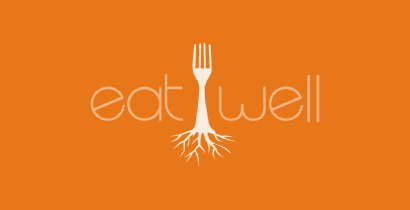Can policies create a healthier Europe? (EATWELL)
Last Updated : 01 December 2012Healthy eating policy interventions need to be systematically evaluated for their impact in order to establish what works and what doesn’t. The EATWELL project (Interventions to Promote Healthy Eating Habits: Evaluation and Recommendations) aims to identify the successes, failures and uncertainties of such campaigns. The results of this EU-funded 7th Framework project will be used to provide advice for policy makers for creating more successful healthy eating policy interventions.
The last two decades have seen obesity, unbalanced diets (too much saturated and trans fats and salt, too few portions of fruit and vegetables) and their associated diseases become a serious public health concern, compelling European Union Member States to initiate various national policy campaigns encouraging physical activity and healthier diets. In 2007, the World Health Organization (WHO) requested the implementation of concerted actions to encourage healthy eating and increased physical activity.1 The launch of the WHO’s Second Action Plan for Food and Nutrition Policy 2007–2012 advocated monitoring and evaluation of every policy or programme.2
Policy interventions and their evaluations in the EU
EATWELL’s international team of researchers consulted governmental websites, databases, journals, policy makers, and public servants to identify over 100 policy interventions in Europe. These were split into two broad categories; those supporting more informed choice by providing information or education, such as nutrition labelling and social marketing and those seeking to change the market environment by changing prices or food availability, such as imposing taxes on foods or providing vouchers for disadvantaged consumers.3
Evaluating the effectiveness of interventions
EATWELL also reviewed available information and used secondary data to undertake fresh analyses of policies and gain a deeper understanding of what works.
The work highlighted a low level of evaluation of policies by policy makers and a lack of sophistication in the evaluation approaches used. It also found that, although information measures are necessary for informed choice, they have limited impact on diets. Attitudes and knowledge are enhanced, but behaviour has been slow to follow. Measures that change the market environment, on the other hand, are more effective but may be considered ‘interventionist’.
There is a general tendency towards the less controversial information and education actions. Until recently, policy actions, other than information campaigns, were confined to a few cases in Scandinavian countries and the UK, with France as a newcomer. The Mediterranean countries and transition economies have only a recent history of policy action, mostly confined to information and education measures.
Some policies were found to be almost absent in Europe, such as nutrition information on menus, fiscal measures and nutrition-related food standards. Implementation of fiscal measures, such as fat taxes, is only beginning in Europe; however, evidence collected outside Europe suggests they elicit small behavioural responses, but large tax revenues. Reformulation, mainly through public/private collaborative voluntary action, has reduced intakes of trans-fats and salt.4
Learning from the private sector
The project also considered the marketing skills of the private sector. Analysis of 27 successful commercial food marketing cases identified key success factors in food marketing that could be transferred to the public sector. A survey with 31 experts helped to identify the challenges as well as resources and competences needed for transferring results to the public health promotion area.
The research suggests that public programmes for healthier eating could benefit from:
- Strengthening research into citizen's environment and current trends.
- Increasing citizen involvement.
- Decreasing barriers for and expanding public-private-partnerships.
- Stressing short-term non-health benefits of healthy behaviours.
- Strengthening public campaigns by adding a stronger emotional appeal and linking with common values.
Public acceptance
A crucial part of the EATWELL project was to assess the acceptability of public health policies for different population sub-groups, as acceptance is vital for their success. Over 3,000 online interviews were carried out in Italy, UK, Belgium, Denmark and Poland to investigate public acceptance of, and willingness to pay for, potential enhancement of existing measures or new measures.
The survey found that education in schools and labelling requirements are the most supported policies everywhere, whereas bans of vending machines from schools, of advertising to adults and regulation of workplace meals are the least supported. Acceptance rates were similar across countries, although Italy’s were slightly higher and Denmark’s slightly lower. Denmark showed an overall low support for healthy eating policies, but higher support for fat taxes.
Outcomes
EATWELL coordinator, Professor Bruce Traill of Reading University, explained; “EATWELL will recommend appropriate interventions for Member States and the EU based on evaluations of policy interventions and their acceptability to stakeholders, as well as lessons taken from the private sector.”
More information, podcasts and all EATWELL scientific publications are available at http://www.eatwellproject.eu.
References
- World Health Organization (2007). The Challenge of Obesity in the WHO European Region and the Strategies for Response, Copenhagen, Denmark.
- World Health Organization (2008). WHO European Action Plan for Food and Nutrition Policy 2007–2012, Copenhagen, Denmark.
- Traill WB et al. (2010). Interventions to Promote Healthy Eating Habits: Evaluation and Recommendations. Obes Rev 11(12):895-898.
- Capacci et al. (2011). Policies to promote healthy eating in Europe: A structured review of instruments and their effectiveness. Nutr Rev ISSN 1753-4887. Article first published online: 1 FEB 2012. doi:10.1111/j.1753-4887.2011.00442.x.
